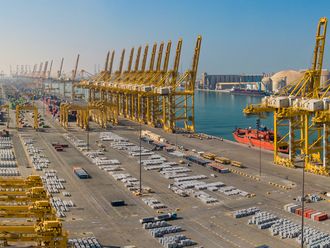Dubai
The current fragile conditions need active management of funds.
Two thirds of those surveyed expect some bubbles to negatively impact market performance, and that’s why 75 per cent of the people expect active funds augurs well with the current market environment.
About 33 per cent are decreasing their allocations in fixed income in high yield corporate debt, while only 26 per cent are trimming exposure to government debt, reflecting fears of a bubble. The exposure in fixed income allocations fell to 33.9 per cent compared to 35 per cent last year, while the equity exposure have risen to 37.1 per cent from 33.8 per cent in 2016.
As an alternative, investors have been increasing their exposure to non-traditional assets, including private equity, private debt, infrastructure and real estate, as they seek higher yielding assets in a rising rates scenario, a study released by Natixis Investment Managers, which surveyed 500 global institutions managing more than $19 trillion in assets, revealed.
“Beyond the traditional interplay of fixed income and equities, we’re also seeing many institutional investors seek refuge in alternative investment strategies, as they look to protect and diversify their portfolios while also generating satisfactory returns. Instead of the long-standing hunt for yield, we are seeing an emerging scrutiny of portfolios – and a new hunt for diversification.” Oliver Bilal, Head of International Sales and Marketing at Natixis Investment Managers said.
“Institutional investors around the globe are wary of fragile market conditions, distorted asset prices and systemic risks caused by central bank interventions and the growing popularity of passive investments, and they continue to turn to active management to manage current market conditions. They are confident their own portfolios are built to weather future market conditions, but warn that individual investors are not aware of the systemic market risks posed by passive investing,” Bilal added.
The survey found 59 per cent believe that volatility has been artificially suppressed by flows into passive investment strategies. More than half believe the increase in passive investing is distorting relative stock prices and creating systemic market risks, of which 72 per cent believe individual investors aren’t yet aware.
Outperformance
More investors feel that active management outperforms the passive in the long run.
Three-quarters of institutions say active managers are better at accessing emerging market opportunities – and a similar proportion say active managers provide better exposure to non-correlated asset classes.
“Managing downside risks will be more of a challenge in 2018 – but the New Year should also be seen as an opportunity. Volatility can boost returns for those able to take advantage; however institutions without a truly diverse and durable portfolio risk reacting to market corrections and volatility – rather than profiting from such movements. Markets look set for a more lively and volatile 2018, and active markets will therefore demand far more active thinking,” Oliver Bilal added.
Asset bubbles
Prolonged lower interest rates have may have created asset bubble, investors fear.
About 42 per cent of institutional investors are expecting a bond market bubble, twice the number of investors who expect a real estate bubble.
“With all fixed income investments now subject to the growing possibility of sustained global rate rises, many institutional investors are starting to view current bond market valuations with suspicion. Consequently, investors are increasingly looking for alternatives and uncorrelated investment solutions that can help them to ride out market challenges in 2018,” Bilal added.












